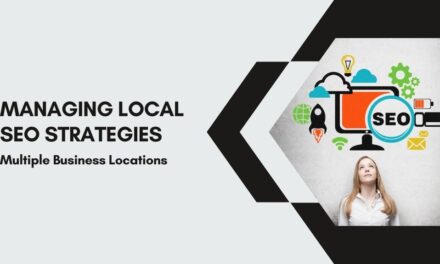Real estate agents must come up with creative strategies to stay competitive as more buyers and renters turn to online searches to find properties. Predictive SEO is an innovative method that merges traditional SEO with predictive analytics, enabling professionals to forecast market trends and adjust their tactics in response. This article examines how real estate agents can utilize predictive SEO to effectively attract buyers and renters.
Understanding Predictive SEO in Real Estate
Predictive SEO is a forward-thinking strategy that uses data analysis to forecast future search behaviors and optimize content in anticipation of these trends. Unlike traditional SEO, which focuses on optimizing for current search patterns, predictive SEO involves staying one step ahead of the competition by creating content that addresses future needs.
In the real estate industry, predictive SEO involves recognizing buyer preferences, like the increasing demand for certain neighborhoods or the types of properties individuals are inclined to look for. By utilizing market forecasts, agents can make sure their content stays pertinent and appealing to prospective clients. This proactive strategy generates natural website visitors and also positions the agent as a reliable information source.
For instance, if data indicates an upcoming demand for rental properties in urban areas, real estate agents can start optimizing their listings and creating blog posts about the benefits of renting in city centers. By the time the trend materializes, their content will already rank high on search engine results, making it easier to attract renters.
Analyzing Buyer and Renter Search Behavior
To effectively implement predictive SEO, it is essential to understand the search behavior of buyers and renters. Most online property searches begin with specific, intent-driven queries. These queries often include long-tail keywords such as “best family-friendly neighborhoods in Austin” or “luxury apartments near downtown LA.”
Seasonal patterns also have a considerable impact on determining search patterns. For instance, the search for holiday residences may reach its highest point in spring, while the request for rental properties typically increases at the beginning of a new academic year. Agents can schedule their content calendar based on buyer trends by comprehending these seasonal patterns.
Localization is another critical factor. Buyers and renters often include location-specific keywords in their searches, such as “condos for sale in Miami Beach” or “affordable rentals in Brooklyn.” By targeting these localized queries, real estate agents can increase their visibility among potential clients in specific areas.
Analyzing search behavior requires the use of advanced tools like Google Analytics and SEMrush. These platforms provide valuable insights into the keywords and phrases that drive traffic, helping agents tailor their content to align with market predictions.

Implementing Predictive SEO Strategies
Predictive SEO strategies are designed to anticipate future buyer and renter needs and optimize content accordingly. Here are some actionable steps for real estate agents:
1. Keyword Forecasting
Analyzing historical search data is the first step in predicting future trends. For example, if data shows a consistent increase in searches for “smart homes” over the past few years, agents can create content focused on smart home technology and its benefits.
2. Content Planning
Content should be tailored to address the needs of future clients. Blog posts, neighborhood guides, and video tours of properties are excellent ways to engage potential buyers and renters. For instance, an article titled “Top Suburbs for First-Time Homebuyers in 2025” can position an agent as a forward-thinking expert.
3. Technical Optimization
The performance of a website is crucial for determining SEO rankings. Making sure your website is compatible with mobile devices, loads quickly, and provides a smooth user experience will enhance its presence on search engines. Furthermore, improving metadata and implementing schema markup can aid search engines in grasping the content more effectively, ultimately boosting rankings.
By adopting these strategies, agents can stay ahead of the curve and attract more traffic to their websites.
Leveraging Predictive Tools for Listing Optimization
To make the most of predictive SEO, real estate agents must leverage the right tools. These tools provide actionable insights into search trends, helping agents optimize their listings effectively.
1. Google Trends
Google Trends is a free tool that tracks the popularity of search terms over time. For example, if searches for “pet-friendly apartments” are trending, agents can highlight these features in their listings.
2. SEMrush
SEMrush offers comprehensive analytics, including keyword research, competitor analysis, and traffic insights. By identifying high-ranking keywords and analyzing competitors’ strategies, agents can fine-tune their SEO campaigns.
3. Predictive Analytics Software
Advanced analytics platforms use machine learning to analyze large datasets and predict market trends. These tools can forecast buyer preferences, such as the demand for eco-friendly homes, allowing agents to optimize their listings accordingly.
4. CRM Integration
Utilizing CRM tools with predictive features enables agents to predict client needs and personalize their communication approaches. If a CRM shows that a client is probable to make a purchase in the next three months, the agent can offer specific content to cultivate the potential customer.
By integrating these tools into their workflow, real estate agents can create data-driven strategies that attract more buyers and renters.
Creating Hyperlocal Content to Boost Visibility
Hyperlocal content focuses on specific neighborhoods or communities, making it highly relevant to potential buyers and renters. This type of content not only improves search engine rankings but also establishes the agent as a local expert.
1. Neighborhood Guides
Creating in-depth guides about local neighborhoods, including information on schools, amenities, and transportation, can attract buyers who are researching specific areas. For example, a guide titled “Living in Downtown Seattle: What You Need to Know” can help prospective clients envision their life in the area.
2. Local Market Analyses
Publishing regular updates on local market trends can position the agent as a trusted resource. These updates can include data on average home prices, rental rates, and market predictions for the coming months.
3. Community Events
Shining a spotlight on events within the community, like farmers’ markets or cultural festivals, brings a personal element to the content and involves the local residents. This method also assists agents in bonding with clients who appreciate being involved in their community.
By focusing on hyperlocal content, agents can enhance their real estate SEO efforts and attract clients who are genuinely interested in their target markets.

Measuring the Success of Predictive SEO Efforts
Monitoring the performance of predictive SEO campaigns is essential to ensure they deliver the desired results. KPIs provide valuable insights into what works and what needs improvement.
1. Organic Traffic Growth
An increase in organic traffic indicates that the content is resonating with the target audience. Tools like Google Analytics can track the number of visitors and their behavior on the site.
2. Click-Through Rates
High CTRs suggest that the titles and meta descriptions are compelling enough to attract clicks. Regularly updating these elements based on keyword trends can further improve CTRs.
3. Conversion Rates
Ultimately, the goal of real estate SEO is to convert website visitors into leads or clients. Monitoring conversion rates helps agents understand the effectiveness of their strategies.
4. Feedback and Adjustments
Guidance for future strategies should be based on feedback from analytics tools. If a certain blog post generates a lot of traffic, agents can make similar content to achieve the same level of success.
Regularly analyzing these metrics ensures that predictive SEO campaigns remain effective and aligned with buyer trends.
Future Trends in Real Estate SEO
The world of real estate SEO is constantly evolving, with new technologies reshaping how buyers and renters search for properties. Voice search is becoming increasingly popular, with users asking questions like “What are the best houses for sale near me?” Similarly, visual search tools allow users to find properties by uploading images.
AI is changing predictive SEO by offering more detailed analysis of consumer actions. With the rise of smart home technology and virtual reality, agents need to adjust their tactics in order to remain current. Creating virtual tours tailored for SEO can boost user interaction and enhance search rankings, for instance.
By staying informed about these trends, real estate agents can future-proof their strategies and continue to attract buyers and renters effectively.
Conclusion
Anticipating market trends and aligning strategies with buyer and renter interests is enabled by Predictive SEO, a powerful tool for real estate agents. Agents can improve their online visibility by analyzing search patterns, utilizing advanced tools, and creating hyperlocal content for their listings. Adopting predictive SEO will be crucial for the real estate market to stay ahead and achieve lasting success as it evolves.












